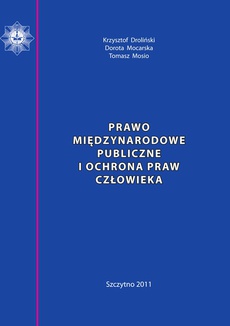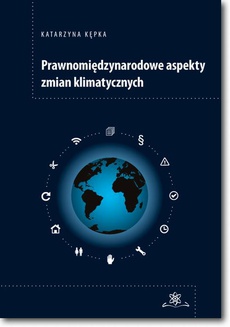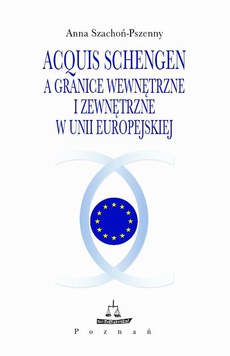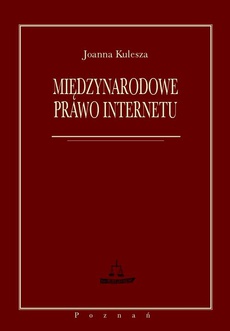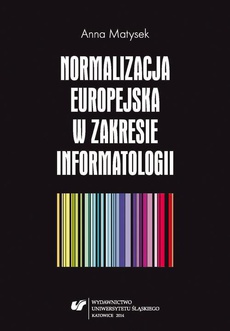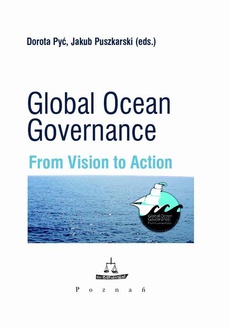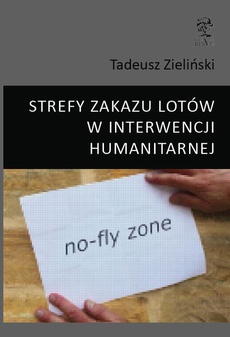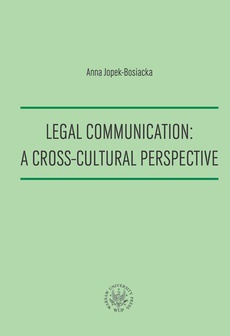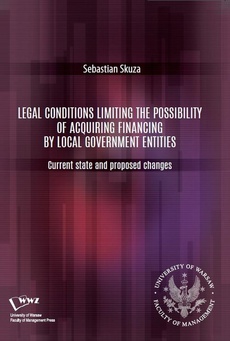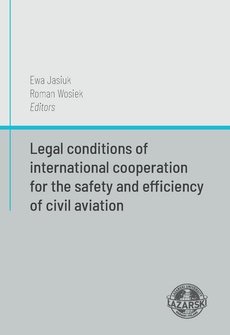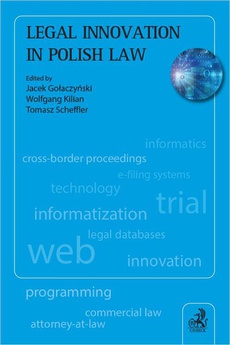POLECAMY
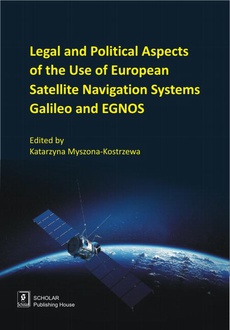
Legal And Political Aspects of The Use of European Satellite Navigation Systems Galileo and EGNOS
Autor:
Katarzyna Myszona-Kostrzewa, Zuzanna Kulińska-Kępa, Joanne Irene Gabrynowicz, Karol Karski, Zbigniew Kłos, Barbara Skardzińska
Wydawca:
Format:
pdf, ibuk
Global satellite navigation systems – GPS, GLONASS, Compass, Galileo – bring the world and the outer space closer to us. Regardless of the weather, the time of day or night, satellite navigation allows us to determine the location of points and moving objects anywhere on the surface of the Earth, in the sky, and all over the universe. Each of us can get additional data related to their location, e.g. the address of the nearest hospital, petrol station, or restaurant. The emergency services may accurately locate the place from which the emergency call was made. Thanks to atomic clocks placed on navigation satellites, financial transactions and high-voltage networks can work effectively.
This publication aims to familiarize the reader with the issues related to satellite navigation, challenges and dilemmas faced by the world and the European Union in the space age.
The Authors:
Joanne Irene GABRYNOWICZ – Professor emerita, has taught space law since 1987 at the University of North Dakota and the University of Mississippi. She is an internationally recognized space law expert. In recognition of her work, the International Astronomical Union named an asteroid after her, (9002) Gabrynowicz = 1981 QV2.
Karol KARSKI – ML, MA, MBA, PhD, Dr. hab., DHC mult., is a Professor and the Head of the Department of Public International Law and the President of the Academic Council of the Institute of International Law, Faculty of Law and Administration, University of Warsaw.
Zbigniew KŁOS – PhD, Professor, Space Research Centre, Polish Academy of Sciences.
Zuzanna KULIŃSKA-KĘPA – PhD, assistant professor in the Department of International Air and Space Law, Institute of International Law, Faculty of Law and Administration, University of Warsaw. The main areas of research: human rights, space law.
Katarzyna MYSZONA-KOSTRZEWA – PhD, Professor, Institute of International Law, Faculty of Law and Administration, University of Warsaw; head of the Department of International Air and Space Law, head of the Post-Graduate Studies of International Law and Foreign Service, University of Warsaw; head of the Section of Space Law and Policy of the Space and Satellite Research Committee of the Polish Academy of Sciences. Fellow of the Queen Elisabeth II Scholarship and the Joseph Conrad Scholarship. The main areas of research: air and space law, international safety, law of the international organizations.
Barbara SKARDZIŃSKA – PhD, Department of International Air and Space Law, Institute of International Law, Faculty of Law and Administration, University of Warsaw. The main areas of research: space law, environmental law.
| Rok wydania | 2019 |
|---|---|
| Liczba stron | 154 |
| Kategoria | Prawo międzynarodowe |
| Wydawca | Wydawnictwo Naukowe Scholar |
| ISBN-13 | 978-83-7383-958-8 |
| Język publikacji | angielski |
| Informacja o sprzedawcy | ePWN sp. z o.o. |
Ciekawe propozycje
Spis treści
| Table of contens | |
| Preface (Joanne Irene Gabrynowicz) | 9 |
| Introduction | 13 |
| I. INTRODUCTION TO SATELLITE NAVIGATION | |
| (Katarzyna Myszona-Kostrzewa) | 15 |
| 1. How does the satellite navigation system work? | 15 |
| 2. The concepts of global and regional satellite | |
| navigation systems | 16 |
| 3. Existing global satellite navigation systems | 19 |
| 4. Existing regional satellite navigation systems | 20 |
| 5. The European satellite navigation systems | 21 |
| II. THE EUROPEAN SATELLITE NAVIGATION SYSTEMS – LAW AND INSTITUTIONS (Katarzyna Myszona-Kostrzewa) | 25 |
| 1. The European satellite navigation systems and the scope | |
| of application of international law | 25 |
| 2. The European satellite navigation systems and the United Nations | |
| and other universal international organizations | 29 |
| 3. The European satellite navigation systems | |
| and the European Space Agency | 33 |
| 4. The European satellite navigation systems | |
| and the European Union law | 35 |
| 5. Summary | 38 |
| III. GALILEO: PRACTICAL AND LEGAL CHALLENGES FOR THE EUROPEAN UNION | |
| (Karol Karski) | 41 |
| 1. Galileo – European Union’s Satellite Navigation | 41 |
| 2. Galileo vs. public procurement | 41 |
| 3. Russian rockets and European satellites | 45 |
| 4. Failure of clocks – the heart of satellite navigation | 47 |
| 5. Dispute between the United Kingdom and the European Union | |
| about access to Galileo after Brexit | 49 |
| 6. Summary | 55 |
| IV. ENVIRONMENT PROTECTION (THE INFLUENCE OF HUMAN-MADE SPACE OBJECTS AND/OR DEBRIS) AND SATELLITE NAVIGATION | |
| (Barbara Skardzińska) | 57 |
| 1. Introduction | 57 |
| 2. Space debris in international law, European Union law, | |
| and national law | 58 |
| 2.1. Space debris in international law | 58 |
| 2.2. Space debris in the European Union law | 62 |
| 2.3. Space debris in national law | 64 |
| 3. Liability for environmental damage | 66 |
| 3.1. Liability for environmental damage | |
| in international space law | 66 |
| 3.2. Liability for environmental damage | |
| in international public law | 73 |
| 4. The procedure for claiming damages | 76 |
| 5. Summary | 79 |
| V. HUMAN RIGHTS AND THE EUROPEAN SATELLITE NAVIGATION SYSTEMS | |
| (Zuzanna Kulińska-Kępa) | 81 |
| 1. Introduction | 81 |
| 2. The European satellite navigation systems | |
| and the right to life | 83 |
| 3. The European satellite navigation systems and the right | |
| to personal liberty and security | 85 |
| 4. The European satellite navigation systems and the right | |
| to property | 87 |
| 5. The European satellite navigation systems and the right | |
| to information | 90 |
| 6. The European satellite navigation systems and the right | |
| to good administration | 92 |
| 7. The European satellite navigation systems and the right | |
| to respect of private and family life and the right to personal | |
| data protection | 93 |
| 8. The European satellite navigation systems and the right | |
| to development and freedom from poverty | 101 |
| 09. The European satellite navigation systems | |
| and the non-discrimination clause | 105 |
| 10. The European satellite navigation systems | |
| and the right to effective remedy | 106 |
| 11. Summary | 110 |
| VI. SECURITY OF THE EUROPEAN SATELLITE NAVIGATION SYSTEMS | |
| (Katarzyna Myszona-Kostrzewa) | 111 |
| 1. Introduction | 111 |
| 2. The European Union law and the security of the European | |
| satellite navigation systems | 114 |
| 3. The European Union law and the security of the Union | |
| and its Member States as affected by the operation | |
| of the European satellite navigation systems | 117 |
| 4. Summary | 118 |
| CONCLUSIONS | 119 |
| I. THE GALILEO PROGRAMME AS A TOOL OF THE INTERNATIONAL POLICY OF THE EUROPEAN UNION | |
| (Zbigniew Kłos) | 119 |
| 1. Galileo – Second Generation GNSS Constellation, Present Status | |
| and Perspectives | 119 |
| 2. Galileo – International Contest | 122 |
| 3. Galileo – the EU–ESA cooperation | 122 |
| 4. Cooperation between the European Union and the United States | |
| on satellite navigation | 124 |
| 5. Cooperation between the European Union and other states | |
| on satellite navigation | 126 |
| 5.1. Cooperation between the EU and China on satellite | |
| navigation | 126 |
| 5.2. Galileo as the European Union platform for space dialogue | |
| with other states | 129 |
| II. LEGAL ISSUES RELATED TO THE USE OF THE EUROPEAN SATELLITE NAVIGATION SYSTEMS | |
| (Katarzyna Myszona-Kostrzewa, Zuzanna Kulińska-Kępa, Barbara Skardzińska) | 131 |
| BIBLIOGRAPHY | 135 |
| INDEX | 147 |
| ABOUT THE AUTHORS | 151 |

